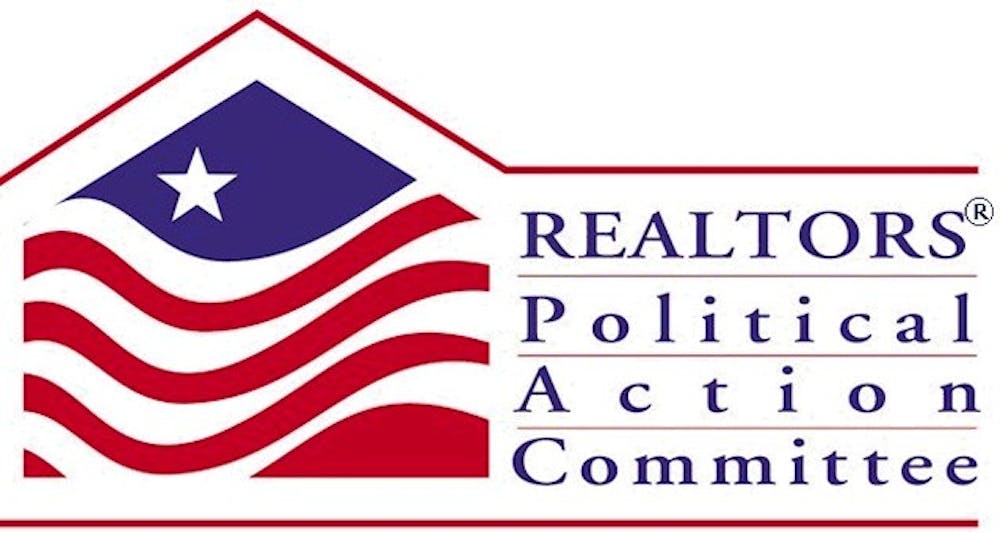Buying influence in Lansing: Friends of CMU PAC contributes mostly to higher ed committee members
Money talks, and Central Michigan University has had a $200,000 voice in Lansing since 2006.
Aptly titled the "Friends of Central Michigan University," a political action committee has given tens of thousands of dollars to politicians in important higher education committee seats to wield political clout and to gain a lobby for the university, according to data collected by the Michigan Secretary of State office.
A political action committee is a group that gathers contributions from donors to give to campaigns.
During the 2014 fiscal year, Friends of CMU has given more than $9,000 to politicians in Lansing and in Washington, D.C. The majority of the recipients have not been from the mid-Michigan area and the group has mainly given to Democratic Party candidates during the last two benchmark election cycles, 2008 and 2012.
The PAC has tried to balance its giving to both Democratic and Republican candidates.
"We tend to give to leaders," said Kathleen Wilbur, vice president of development and external relations. "We typically give to those that chair appropriations committees. We support bipartisanship in higher education. Sometimes, if you're a minority member (of Congress) you don't do as much fundraising until election years."
The committee usually gives to a particular politician the group feels will make an impact on their behalf in Lansing and beyond. The PAC is independent and does not affiliate itself with CMU directly. Yet the group does bear the university's name and is run by at least one employee of the university.
Angela Armstrong, coordinator for government relations at CMU, is the designated bookkeeper for the group. Dan Boge, a certified personal accountant from Mount Pleasant, is the treasurer of the PAC.
In 2013, 39 politicians from local, state and federal governments received anywhere from $40 to $500 from the independent PAC.
U.S. Rep. Dan Kildee, D-Flint Twp., received the most money from Friends of CMU according to the expenditure listings on the Michigan Secretary of State website. The Friends of Dan Kildee PAC received $500 from Friends of CMU on Nov. 5, 2012, the day before he was elected to Congress.
Kildee was appointed the assistant minority whip on Jan. 9, only six days after being sworn into office.
He replaced his uncle, Dale Kildee, after he retired from his tenure in Congress. Kildee serves on the Financial Services Committee, which oversees economic issues like banking, housing, monetary policies and international finances.
On April 1, he was appointed to the House Budget Committee by committee chairman Paul Ryan. He is the only representative from Michigan on the committee. Kildee will remain on the Financial Services Committee according to Mitchell Rivard, Kildee's spokesman.
State government officials are also receiving money from Friends of CMU.
Local state Rep. Kevin Cotter and state Sen. Judy Emmons, both Republicans, have received hundreds of dollars over the last year from the PAC.
Emmons has received $1,052 in PAC to PAC and catering contributions in 2013. Cotter received $500 in PAC to PAC contributions in 2013.
"It's money and they spend it on re-election," said Laura Toy, Emmon's chief of staff. "She's sensitive to the issues for CMU because she serves them. She advocates for them."
Toy said Emmons prefers conversations with her constituents and the people she represents over the monetary donations. However, contributions are always appreciated.
"We're always grateful for people who write you a check," Toy said. "We don't measure our deeds by dollars, though."
Friends of CMU has donated to fourteen politicians on some sort of education committees. The committees are broken into higher education committees and school aid committees in both the State Senate and State House.
State Rep. Al Pscholka, R-Berrien County, has received $450 from Friends of CMU during 2013 and 2014 so far. The representative is vice chair of the House Appropriations Committee, the chair of the House Appropriations subcommittee on higher education and the vice chair of the House Appropriations subcommittee on supplementals and licensing and regulatory affairs (LARA).
He is also on the transportation and human services committees.
Pscholka said the money he receives from the PAC is just a drop in the bucket for a normal fundraising year.
"How much money I get from higher education is very small," he said. "We hold fundraisers twice a year in Lansing. That's when we get most of our funds, including from CMU."
The state representative said the majority of the money in his campaign funds come from constituents that contribute their own money. Pscholka said moneys from higher education institutions are just a form of free speech.
"That's the universities using their freedom of speech to support who they like and who they don't," he said. "I'll probably raise $100,000 mostly from constituents."
A new United States Supreme Court ruling has brought PACs and their donating practices back into the forefront of the national conversation on campaign finance. The ruling changed the way some PACs and businesses donate to politicians.
The USSC ruled in 2010's Citizens United case that money is free speech. Now, there are no limits to how many politicians these PACs can donate to.
Wilbur said the new ruling won't effect the way Friends of CMU donates to politicians.
"We never swim in those waters," Wilbur said about the amount of money some PACs and businesses donate, adding that Friends of CMU doesn't have enough money to reach the limits to begin with.




